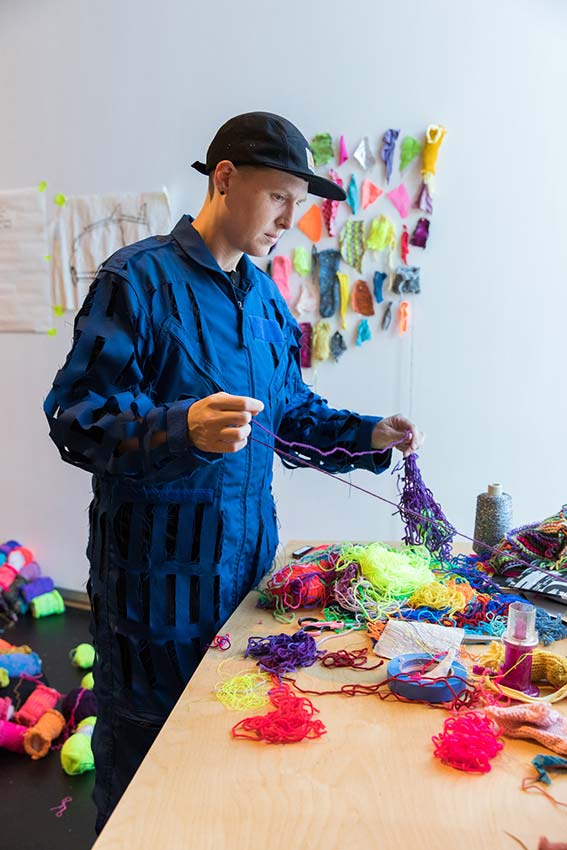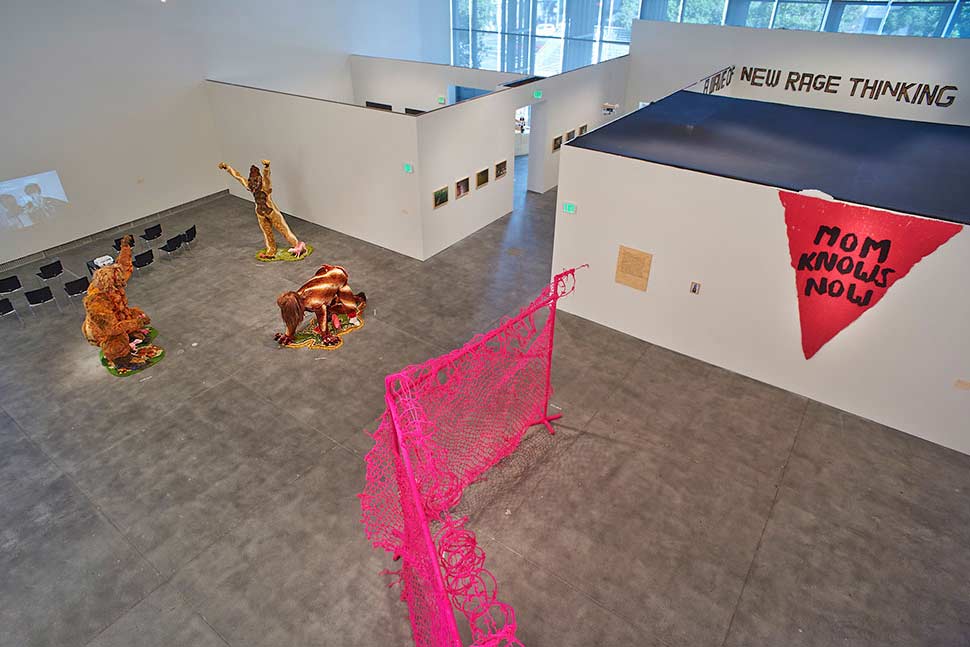L.J. Roberts uses toy knitting machines, industrial looms and laborious hand-stitching to construct room-sized installations, tender portraits, banners and quilts. Roberts embraces craft, a term many associate with “undesirable traits – the feminine, the amateur, the anti-intellectual, the ethnic, the non-white and the lower or working class,” in order to elaborate a queer, trans, feminist and activist culture. As a teenager in suburban Detroit in the 1990s, Roberts was sent to a reform boarding school that was intolerant of their genderqueer identity. Much of the artist’s work, such as the hand-woven barbed wire fence We Couldn’t Get In. We Couldn’t Get Out., draws on their personal experience of confinement while also signaling the larger discrimination immigrants, queer and transgender people face. Although Roberts was not directly involved with the original Riot Grrrl movement, they identify with and found inspiration in its DIY, feminist spirit and through mentors connected to Riot Grrrl like Tammy Rae Carland. The merging of activism and craft in AIDS activism of the 1980s has also had an influence on Roberts’s practice. Mom Knows Now, one of their earliest works, is a giant knit banner Roberts illicitly hung down a church steeple in Vermont; it is a coming out and a declaration. Empowerment and assertion are similarly evident in Roberts’s Jacquard-woven banners like Gay Bashers Come and Get It and Sisters Are Doing It For Themselves, some of which have been used in street protests. Roberts lives in Brooklyn.
Tue July 1st Closed



